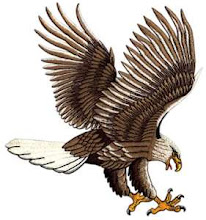How often have you seen some lawyer show (Movie or TV series), where the lawyer stands up and asks a question, that even the novice knows should not have been asked? The opposing lawyer will jump up and object, the judge will sustain the objection then direct the jury to disregard the question. We all know the shyster lawyer got his point across, and no matter who is on the jury, or what they are told, they will keep that tidbit of information to themselves and wonder. Not only that but, what about the parade of witnesses who not only have to be kept waiting for their opportunity to testify, but, after a long drawn out harassment of the lawyers present asking and restating their questions, objecting and pointing out their objections the jury is left wondering if what they had to say was pertinent to begin with. Sometimes after a witness has given his testimony, we find out through cross examination that it was all bogus perjury to begin with. Now, once again we are directed by the judge to disregard his statements. In the worst scenario our defendant sits through the trial and realizes he hasn't a foot to stand on, after several weeks he caves in changes his plea, and the jury has been forced to witness their time wasted, without the satisfaction of passing a verdict forward. You might ask, what else could we do, to make it more streamlined?
I propose that the entire trial be recorded, and edited prior to seating of the jury. Obviously this would not be every case, but the big ones, and many of the medium sized ones, perhaps one day all of them could be done that way. It starts out, with depositions; Depositions become the actual testimonies that would be aired. Any objections made would be aired and once the Judge has ruled on the objection, one of two things would happen 1) the Judge over rules the objection and the tape would be edited of the lawyer making the objection, or 2) the Judge sustains the objection and the both the objection and the substance of the objection is edited out of the testimony, as if it never happened. Perjured witnesses would be edited out completely. Pertinent witnesses and their testimonies would be allowed to remain, but, after review the Judge could decide if their presence was even relative. Any Courtroom dramatics could be edited out and re taped to prevent improper exposure to the jury. Any mistrials could be corrected by editing of the improper evidence or acts (saving the taxpayer the money necessary to stage another trial). The tapes could be used for appeals as well.
After the trial, and the tapes have been reviewed for content (removing what should have been removed) the Jury is seated. Review of the tapes will be able to inform juries how long they will be needed. No need for juries to be sequestered for extended periods during recesses, so lawyers can gather witnesses who didn't show up on time on were needed at an inappropriate time. When the Jury is seated, there will be the Judge, the opposing Lawyers (no need for large teams), the Defendant, the Bailiff or two, and court stenographer (perhaps with the video taping that would be a formality that can be eliminated saving more money). The video would run any and all evidences be shown and passed about. The jury would then deliberate and make their verdict known.
At that time the jury would be thanked and let go. Unless they were needed for capital crimes and determine if capital measures were needed for punishment.
Subscribe to:
Post Comments (Atom)







No comments:
Post a Comment